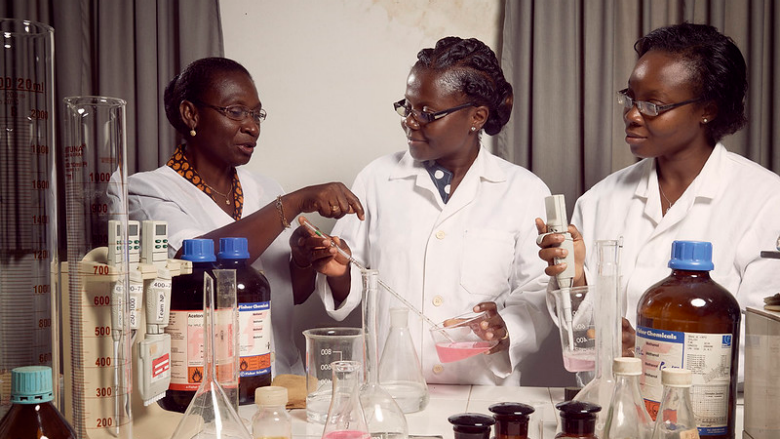Gender equality is central to the World Bank Group’s goals of ending extreme poverty and boosting shared prosperity in a sustainable manner. No society can develop sustainably without transforming the distribution of opportunities, resources, and choices for men and women so that they have equal power to shape their own lives and contribute to their families, communities, and countries. The development community has accelerated progress in addressing gaps between males and females in its operational and analytic work, yet women lag men in most measures of economic opportunity. By prioritizing research and data efforts on gender-related issues, the KCP will help the development community build a better understanding of what works for gender equality and significantly enrich and expand the evidence base.
For example, recent research and data endeavors are focused on innovations to promote productivity and entrepreneurship among women and remove barriers to women’s empowerment in business activities. One study involved offering a group of (randomly selected) female tea pluckers in Sri Lanka detailed information about their pay, deductions, and overtime performance, along with summary statistics comparing these figures to the estate average or a benchmarking group of comparable workers. The research then tracked the impact of this information on work attendance, financial decision making, productivity, and work satisfaction. Another line of research in this area uses multi-country analysis to study the role of foreign direct investment in breaking down barriers to female leadership in businesses and promoting other forms of female empowerment within firms.
In addition, the importance of financial capabilities for promoting deeper financial inclusion of women cannot be underestimated. Taking advantage of rich data sets from the Global Findex database that DEC curates, which measures how people save, borrow, make payments, and manage risks, researchers have begun to gain a better understanding of women’s financial participation. There exist large gender gaps in access to and use of financial services around the world. While much of the research in this area has focused on how best to teach financial capabilities, more research is needed to examine how using digital financial technologies can foster financial capabilities. One recent study introduced payroll accounts in a population of previously unbanked factory workers in Bangladesh. In the experiment, workers in a treatment group received their monthly wages in a bank or mobile account, while a control group continued to receive wages in cash. A key finding was that digital wage payments increased savings and the ability to cope with unanticipated economic shocks, especially among those with low initial financial capabilities (many of whom were women). Moreover, questions on how to remove barriers to women’s ownership and control of assets remain an underexplored area. Researchers have started looking into the use of financial services among women and the effects of those services (particularly credit) on women and their families, and continued support in this area is desired.
More examination into how to overcome the legal and regulatory barriers to women’s economic participation is needed. DEC has developed a comprehensive data set of Women, Business and the Law, and the recent addition of 50 years of data for 190 countries across 35 legal areas further boosted the coverage and depth of the data set. More and more researchers are taking advantage of the rich data to generate evidence-based research to show the impact of gender equality laws on women’s empowerment and other development outcomes. In addition, the Women, Business and the Law data set is being used to track the progress that IDA-eligible countries are making on certain development indicators, including those that are related to legal changes that support gender equality. More resources are desired to develop the data set further and support original research endeavors utilizing these measures.
Working Papers
The evidence base needed by a government to decide how to design a new conditional cash transfer program is severely limited in several critical dimensions. This paper presents one-year schooling impacts from a conditional cash transfer experiment among teenage girls and young women in Malawi.
This paper uses measures of cognitive and noncognitive skills in an expanded definition of human capital to examine how schooling and skills differ between men and women and how those differences relate to gender gaps in earnings across nine middle-income countries.
This paper argues that at the root of current gender inequalities, there are traditional patriarchal social structures in which power is unequally distributed, with men traditionally holding authority over women. The power imbalance is manifested in governance arrangements, of which the paper considers discriminatory formal laws and adverse gender norms that perpetuate gender inequality.
